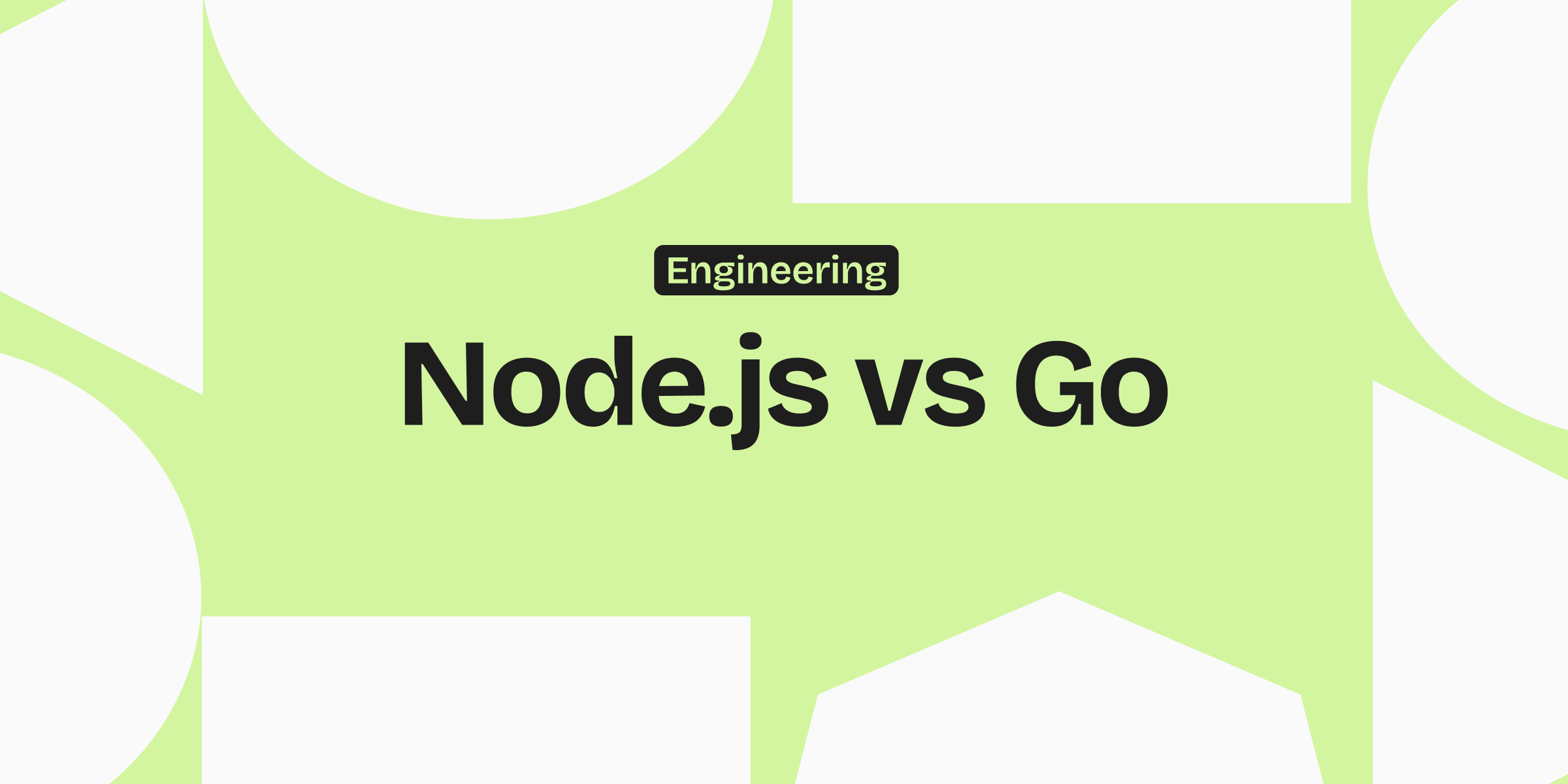Node.js vs Golang: A Practical Deep Dive

Having worked extensively with Node.js over the past eight years and increasingly using Golang for performance-critical applications, I've gathered substantial insights into both technologies. Here’s an in-depth comparison drawn from real-world experience:
Golang Strengths
1. Concurrency and Performance
Node.js, being single-threaded by design, often struggles to utilize multiple CPU cores efficiently. It relies on either the cluster module, which essentially creates separate processes communicating via IPC, or worker threads, which serialize messages and lack true shared memory access. Consequently, Node.js struggles with latency in CPU-intensive or synchronous business logic, especially under heavy loads.
Go addresses concurrency natively with goroutines and channels, offering seamless parallel execution with minimal overhead. Compiled directly into machine code, Go applications consistently outperform Node.js equivalents, particularly in latency-sensitive scenarios.
2. Static Typing
Go’s statically typed nature inherently validates data at compile time. This significantly reduces runtime errors, eliminating the constant need for third-party validation libraries prevalent in Node.js (e.g., Yup, express-validator, AJV). In Go, robust type checking is automatic, making applications inherently safer and more predictable.
3. Strong Numeric and Primitive Types
Go has far superior numeric and primitive type support compared to JavaScript. This is critical in scenarios involving precise calculations, large number operations, and data-intensive processes.
4. Memory Management
Memory leaks are notoriously common in Node.js, especially when websockets are involved. Over the years, I've frequently encountered challenging leaks due to the nuances of JavaScript closures and the V8 garbage collector’s mark-and-sweep behavior. Additionally, prominent third-party libraries (like Socket.io) often contribute to these leaks, making debugging exceptionally cumbersome.
Go’s memory management, however, is more deterministic and stable, reducing the potential for leaks significantly.
5. Lower Memory Consumption
Go servers typically consume significantly less memory than Node.js servers performing similar tasks. This efficiency allows for leaner deployments, reduced infrastructure costs, and easier scalability.
6. Comprehensive Standard Library
Go offers a robust, extensive standard library, eliminating the dependency nightmare commonly encountered with Node.js. Essential tasks such as HTTP handling, cryptography, and concurrency management are seamlessly handled by Go’s native libraries, significantly streamlining development.
Node.js Strengths
1. Rich Ecosystem
Node.js has an unparalleled third-party library ecosystem via npm. Virtually any functionality, from authentication to payments and GraphQL to WebSockets, is readily available. This ecosystem drastically accelerates development cycles and encourages rapid prototyping.
2. Superior Developer Experience with TypeScript
TypeScript immensely enhances JavaScript’s developer experience, offering cleaner syntax, powerful type inference, and superb tooling. Compared to Go’s syntactic quirksawkward for-loops, cumbersome JSON parsing, verbose error handling, and unconventional capitalization for exportsTypeScript is substantially more pleasant and intuitive to use.
3. Meta-frameworks and Quick Bootstrapping
Node.js boasts powerful meta-frameworks such as Nest.js, Adonis.js, and Express.js, drastically simplifying common backend tasks like routing, middleware integration, authentication, and ORM handling. Go, conversely, lacks similarly comprehensive frameworks due to community resistance, often resulting in repetitive boilerplate code and extended initial setup times.
4. Faster Product Development
Node.js excels in scenarios where speed to market is critical. The ease of bootstrapping projects, coupled with its extensive ecosystem, makes it significantly faster and easier to iterate quickly and efficiently.
5. Enjoyable and Flexible Syntax
JavaScript and TypeScript offer developers flexibility and creativity, encouraging diverse and expressive coding styles. Go’s rigid syntax, error handling conventions, and explicit pointer management make it less enjoyable, often resulting in repetitive and verbose code.
The Verdict
Both technologies offer significant advantages tailored to specific scenarios:
- Choose Golang when:
- Concurrency and parallelism are critical.
- Performance and low latency are paramount.
- Memory efficiency and low infrastructure costs are required.
- Applications demand robust and stable execution without memory leaks.
- Choose Node.js when:
- Rapid product development and iteration speed are key.
- Leveraging an extensive ecosystem to avoid reinventing the wheel.
- Developer experience, ease of coding, and flexibility matter significantly.
- Projects benefit from powerful frameworks and tooling that streamline common tasks.
Ultimately, the choice between Node.js and Golang should align closely with the specific requirements of your project, balancing performance and reliability with development speed and developer productivity.
